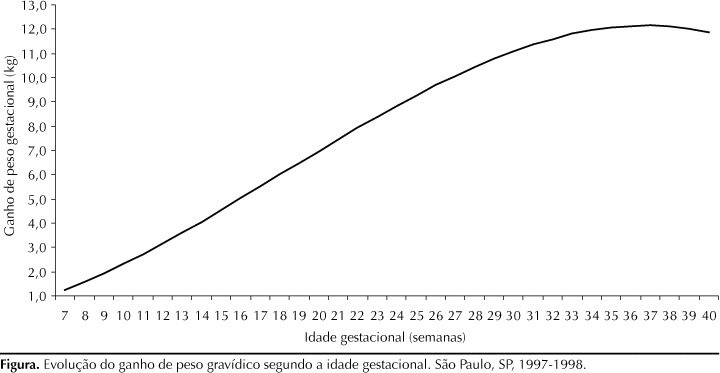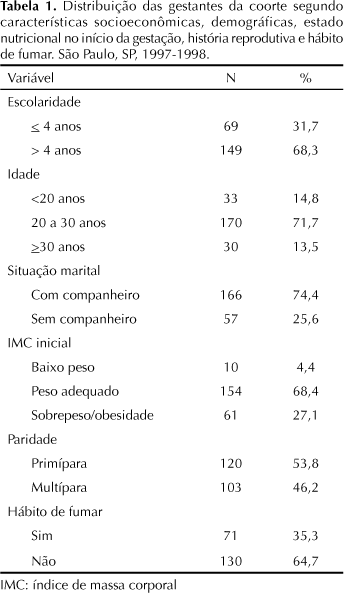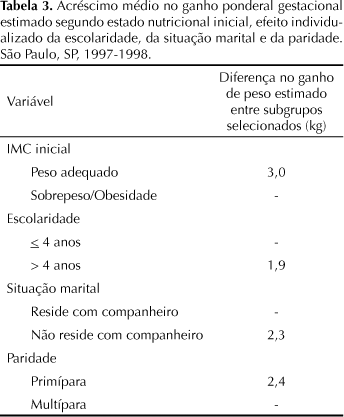OBJECTIVE: To assess the influence of socioeconomic, reproductive, and behavioral factors on the evolution of weight during pregnancy. METHODS: Body weight was measured prospectively in a cohort of 215 healthy pregnant women attended to by a public prenatal service in the city of São Paulo, between 1997 and 1998. The criteria for inclusion were the following: aged 18 or older and with the beginning of prenatal care at a gestational age <16 weeks. The relation between the independent variables and the evolution of weight during pregnancy was assessed by means of the multilevel hierarchical linear analysis, and subsequently analyzed by the maximum likelihood test. RESULTS: In the multilevel analysis, the factors that were significantly associated to gestational weight gain were the following: initial BMI, level of education, marital status and parity. The equations thus obtained enabled to identify the individual effect of each of these characteristics: eutrophic initial BMI, level of education > 4 years, lack of partner, and primiparity cause increases of 3.0 kg, 1.9 kg, 2.3 kg and 2.4 kg in the total weight gain during pregnancy, respectively. CONCLUSIONS: Initial BMI, level of education and parity are the maternal characteristics that, along with the marital status, must be taken into consideration in the development of strategies to promote adequate weight gain during pregnancy.
Pregnant women; Weight gain; Obesity; Body measures and weights; Risk factors; Socio-economic factors





